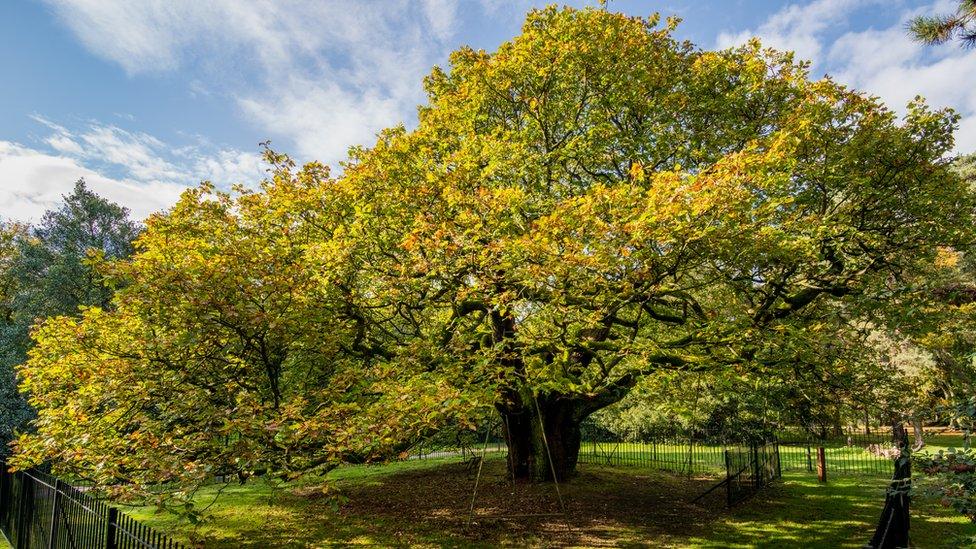1,000-year-old oak tree wins top prize!
- Published

This tree has just won a really big prize (if you're a tree)!
Woodland Trust have announced the winner of Tree of the Year in England and it's the Allerton Oak.
The majestic tree overlooks Calderstones Park in South Liverpool.
It managed to get more than 34% of the 11,000 votes from the public, and will also represent the UK in the European Tree of the Year contest in February 2020.
How did it win?
The Woodland Trust asked for members of the public to nominate trees with the most fascinating stories.
The Allerton Oak is said to have a lifespan of over 1,000 years.
Having lived so long, it's clear that the tree has seen a lot in its time and probably holds many secrets too!
The Allerton Oak is over 1,000 years old!
According to local legend, the 'Hundred court' used the Oak as a courthouse as they used to meet under the branches to discuss important matters.
It also has a crack in its side which was said to appear from the explosion of the gunpowder ship, Lottie Sleigh, on the River Mersey in 1864.
In World War II, families sent acorns and leaves from the Allerton Oak to soldiers.
Adam Cormack, who is Head of Campaigning at the Woodland Trust, said "The Allerton Oak is a spectacular example of a city tree. It has stood in Calderstones Park for centuries and has an intriguing story."
Who were the runners up?
Other trees that have have been popular with he public are from Essex and the Isle of Wight.
The Colchester Castle Sycamore was planted in 1815 by the mayor's daughter
The enchanting Colchester Castle Sycamore, which grows on top of the Essex stronghold came second.
Legend claims that the Isle of Wight Dragon Tree was once a dragon!
And a mythical Dragon Tree on the Isle of Wight was a "close third".
- Published31 August 2019
- Published7 February 2019
- Published20 January 2020
